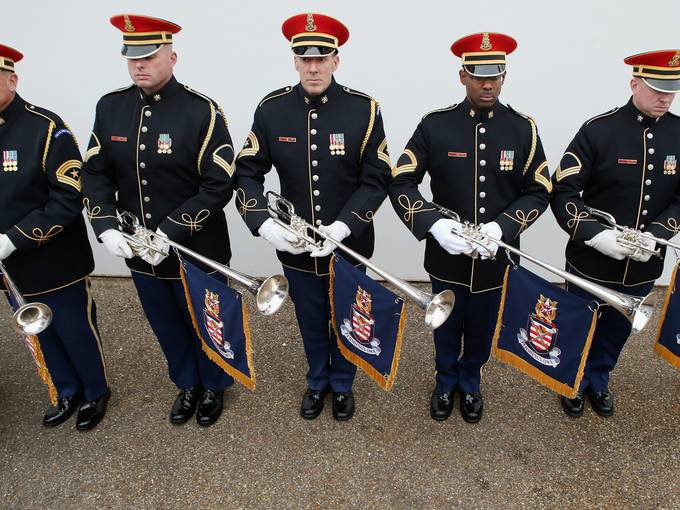Obama's real inauguration is on Sunday
President Obama gets sworn in during a big ceremony Monday, but the real inaugural takes place Sunday.
For all the pomp and pageantry of Monday's presidential inauguration, all President Obama really needs to make his second term official is the small ceremony set for Sunday in a White House parlor.Obama, the seventh president or president-elect to have Inauguration Day fall on a Sunday, is following the path of predecessors who held a private oath-taking on the constitutionally prescribed Jan. 20 date, followed by a public swearing-in and parade on Monday.
FULL COVERAGE: The 57th presidential inauguration
"Everything that happens on Monday is ceremony and show," said presidential historian Carl Sferrazza Anthony.
The official inauguration takes place just before noon Sunday in the Blue Room, one of the smaller rooms off the main foyer of the White House residence. The guests will be members of Obama's immediate family plus a prominent government official — Chief Justice John Roberts, who will administer the oath to President Obama.
Also present: a small media pool, including a television camera that will beam the brief proceedings across the globe.
The Sunday swearing-in may take less than five minutes. Roberts delivers the oath — that's it. No speeches or presidential remarks are planned.
"It's not likely to take very long," said White House spokesman Jay Carney.
Oddly, this will be the second time Roberts has sworn in Obama at the White House itself. Four years ago, on the west steps of the U.S. Capitol, Roberts botched the oath, requiring a re-do the next day in the Map Room on the ground floor of the White House residence.
Roberts and Obama will also be at the public event on Monday. By the time they're done, Obama will be only the second president — along with Franklin D. Roosevelt — to take the oath of office four times, though FDR did so after winning four separate presidential elections.
Earlier on Sunday, at 8 a.m., Vice President Biden will have a separate swearing-in at the U.S. Naval Observatory, the vice president's official residence. Supreme Court Justice Sonia Sotomayor will swear in Biden for his second term. There will also be pooled coverage of that event.
Obama and Biden will host an inaugural reception Sunday.
The oval-shaped Blue Room is named for the color of the wallpaper and furniture coverings. Originally furnished by Dolley Madison, it has windows that look south toward the Washington Monument. During the holidays, the Blue Room is the home of the White House Christmas tree.
This is the seventh time in U.S. history that Inauguration Day has fallen on a Sunday, forcing improvised plans for religious and logistical reasons.
President James Monroe first faced the problem as he began his second term in 1821, back in the days when inaugurations were held on March 4. After consulting with the Supreme Court, Monroe decided to delay the entire inaugural ceremony, in part because courts and other public institutions were closed Sunday.
In 1849, President-elect Zachary Taylor also delayed his inauguration by a day because March 4 fell on a Sunday.
President-elect Rutherford B. Hayes changed the equation when his 1877 inaugural date fell on a Sunday. Instead, he took the oath in a private ceremony the day before, on March 3.
Hayes had a unique reason: He had won the disputed 1876 election over Democrat Samuel Tilden, and there was concern that Tilden forces would try to disrupt the inauguration ceremony, or maybe even kill the new president. Hayes also took the oath of office publicly without incident March 5.
President Woodrow Wilson set the modern precedent with his second inaugural in 1917. Wilson became the first president to actually take the oath on a Sunday, then follow up with a public ceremony and a formal inaugural address the next day.
Presidents Dwight Eisenhower in 1957 and Ronald Reagan in 1985 – and, now, Barack Obama in 2013 – followed Wilson's lead.
The only difference is that Jan. 20 is now the Inauguration Day, courtesy of the 20th Amendment to the U.S. Constitution, ratified in 1933. It says, "The terms of the President and Vice President shall end at noon on the 20th day of January" -- hence the need for some kind of official action on that date.

No comments:
Post a Comment